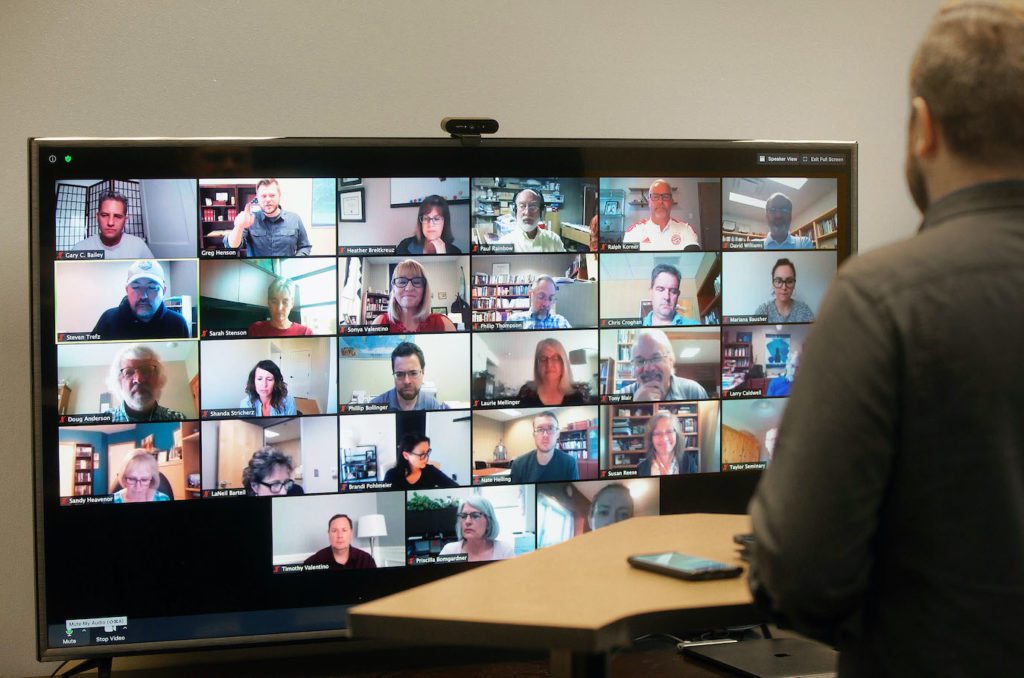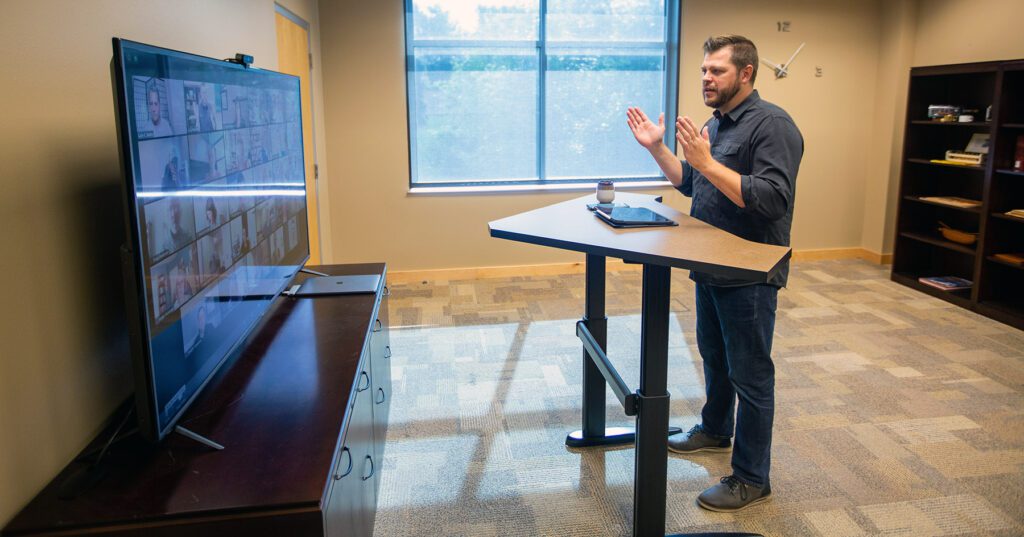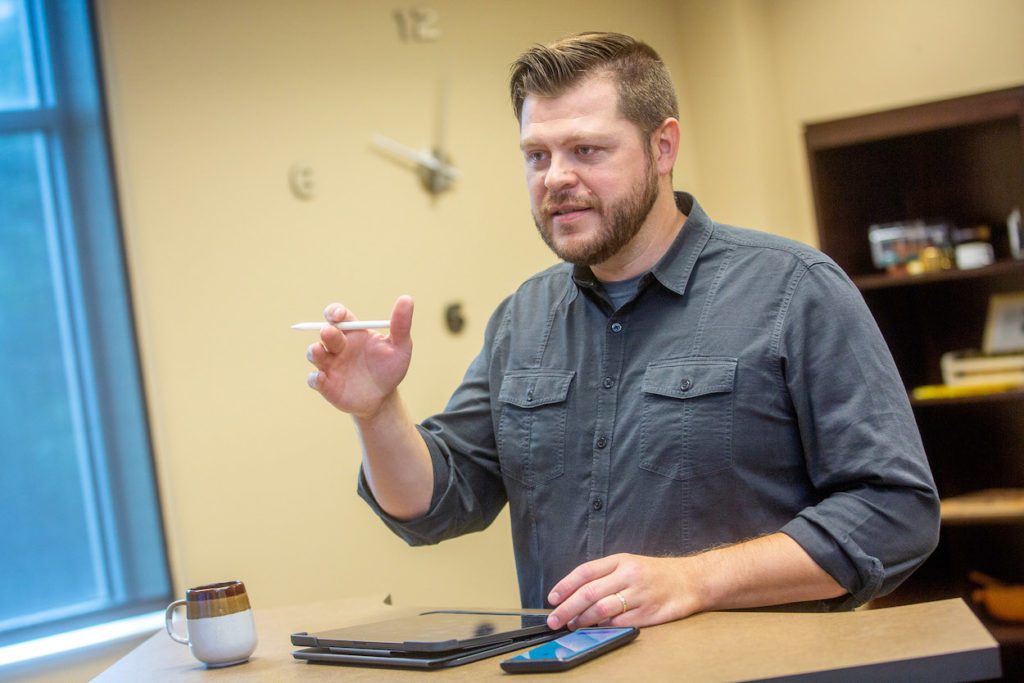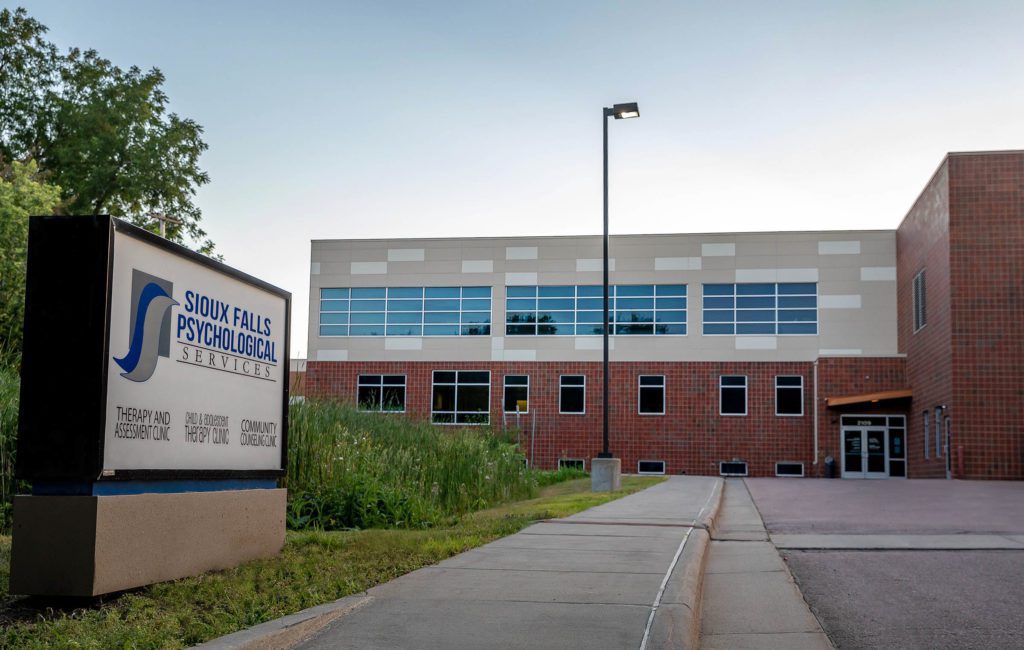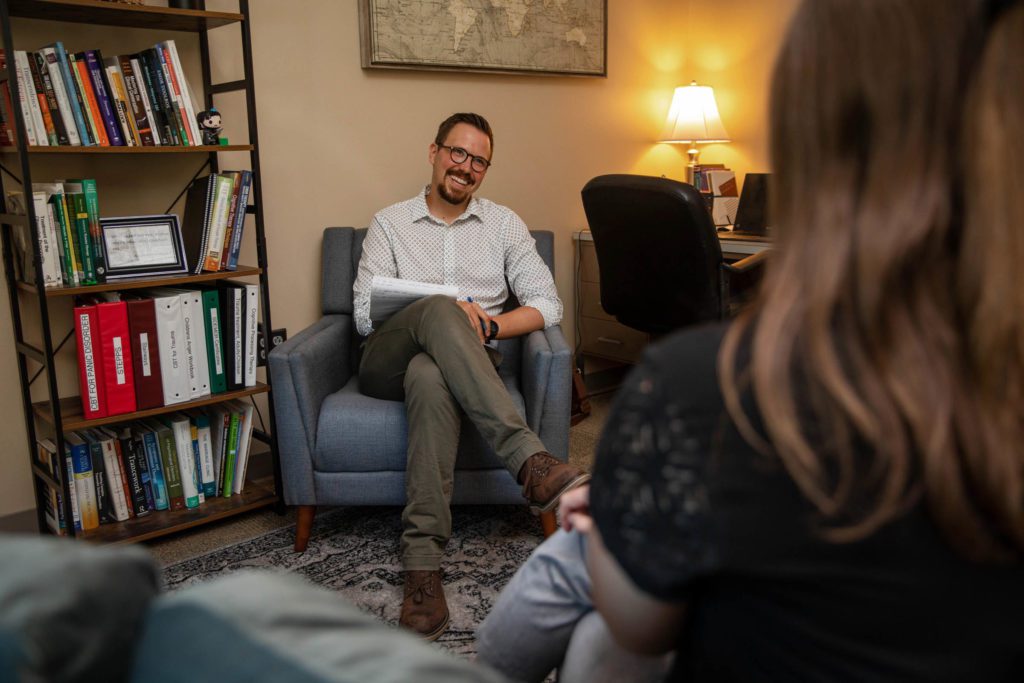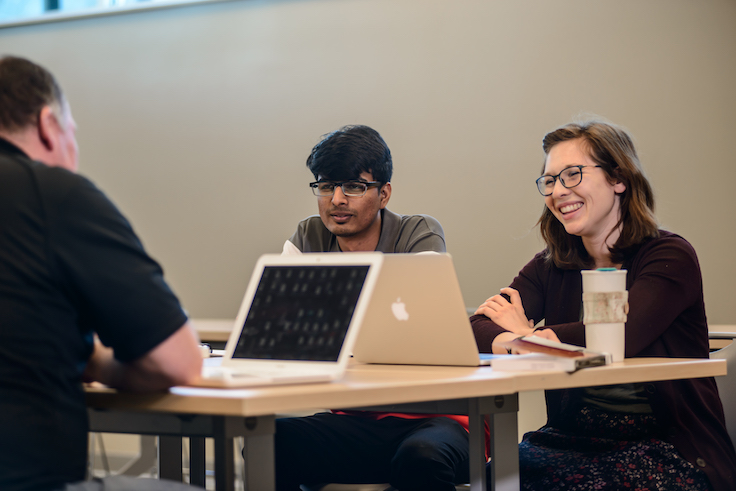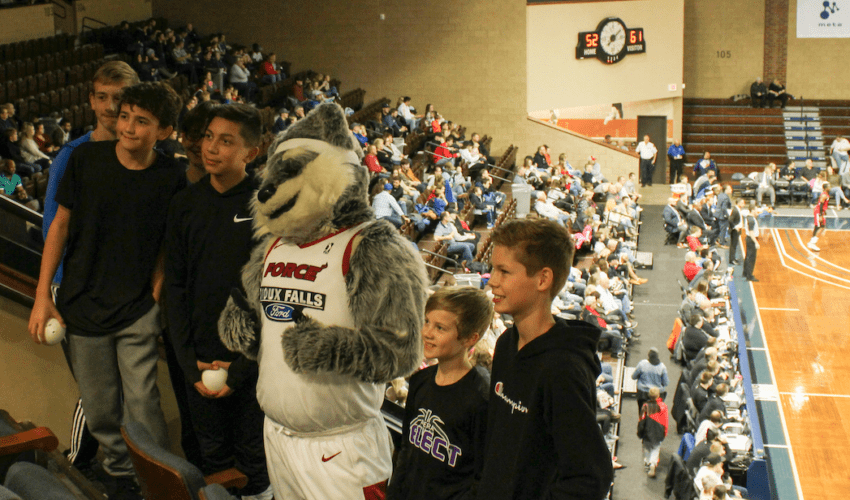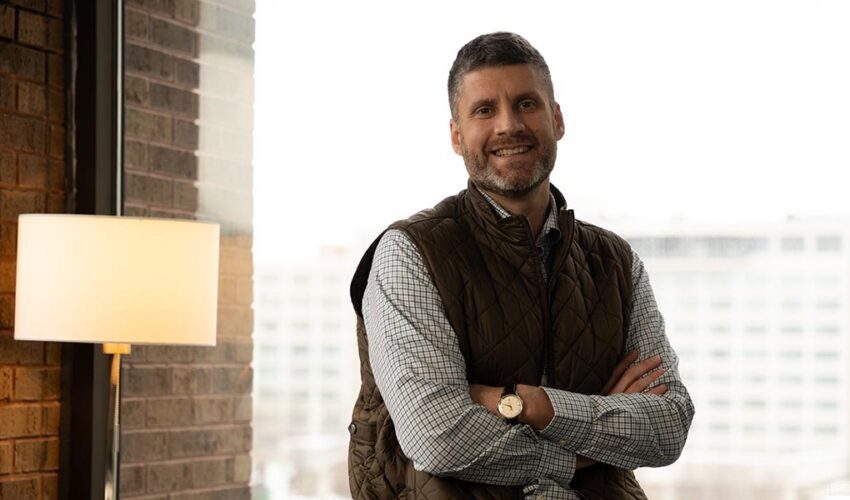Higher education network doubled during pandemic to become full university
Sept. 1, 2021
This paid piece is sponsored by Sioux Falls Seminary.
It’s the traditional start of the school year, but not necessarily for students in the Kairos network.
Kairos, which is Greek for “moments in time,” is an approach to higher education that takes students on a personalized learning journey. They begin and end the program at any time while paying $300 per month, and the ultimate goal isn’t always earning a degree.
In the past year, this network of schools, students and teaching mentors has grown significantly.
We sat down with President Greg Henson, who shared what’s next for Kairos.
Let’s start with “the state of Kairos” today. What’s the big picture look like at the Kairos network as far as participation?
In addition to Sioux Falls, South Dakota, we now have schools in Houston, Texas; Myerstown and Freeport, Pennsylvania; and Edmonton, Alberta, Canada. We work with more than 50 organizations as well as students and partners from 70 different denominations. We reach participants in about 30 different countries, and somewhere around 1,000 students are served by approximately 1,500 mentors. If you include our mentors, students, partners and individuals who are participating in Kairos as a network, it’s around 4,000 people, which is a far cry from the 150 students we had in 2014. And we’re serving students in multiple languages – English, Spanish, Portuguese and French, with people asking about Mandarin and other languages around the world. It’s become a global movement.
As an organization, we’ve grown the most through the pandemic, so we have faculty who have never been in a room together. They’ve only interacted on Zoom. These individuals have fully integrated with Sioux Falls Seminary, and most have never been to Sioux Falls. The organization is at least twice as large as it was, so now we’re looking at optimization. We have a lot of buy-in and trust, but we want to remain a nimble, change-oriented, innovative organization even though we can’t easily get everyone in the same room for a conversation.
What sort of growth has Kairos experienced in the past year, and what are you anticipating in the coming year?
We went from being a graduate school to a full university, with undergraduate, master’s and doctoral degree programs. We launched the undergraduate program in spring 2020, right as the pandemic hit our region, and we’re going into the second year with students in many locations. We have some in Sioux Falls, some in Canada and some on both U.S. coasts — all ranging from age 18 to mid-40s. And, like all our programs, students can start the Bachelor of Arts any month. In addition, a new research doctoral degree is now offered, and plans are in place to add others like it.
In Kairos, it’s about engaging with distributed learning. Not online learning. Even if students engage in learning through online means, that doesn’t mean they’re in front of a computer disconnected from humans. That’s why there are mentors all over the world. We have students in Brazil who are in a classroom interacting face-to-face. We are not losing interaction through this global network. We’re localizing it.
This localized global network has really blossomed over the past eight years. As a result, more and more people around the world know us as “Kairos” so we are considering how best to respond to that reality. One step is the creation of a university structure through which Sioux Falls Seminary will serve as a hub for Kairos University, a first-of-its-kind global system of theological education.
Your organization also includes Sioux Falls Psychological Services. What has the past year brought for its services?
Sioux Falls Psychological Services is a vital aspect of what we do as Sioux Falls Seminary. In some profound ways, we were prepared for the pandemic and ahead of the game on technology. We had done a lot of work in telemental health care, but one of the things holding us back was how some insurance companies accounted for it. The pandemic changed that and allowed us to leverage our strengths. I really appreciated the team’s willingness to lean into the opportunity.
In addition to our expanding mental health services, we also now offer the only faith-based, COAMFTE-accredited, distributed learning marriage and family therapy/counseling program in North America. With our expanding network and footprint, I am very excited to see what the future holds. We have multiple locations that offer counseling and therapy, and look forward to seeing how these resources come together.
We have an opportunity to take what we’ve learned through our theology programs in Kairos and bring that into the marriage and family therapy/counseling world. While maintaining our high-quality clinical focus, we will begin making it more affordable and accessible — all while leveraging the expanded network of mentors and specializations present within Kairos.
The pandemic accelerated change in many industries. Do you feel like it did for higher education as well? And how is Kairos uniquely positioned to capture that?
It seems that all of education is wrestling with the infrastructure we’ve built to serve and walk with students. While that infrastructure can be helpful, it can often detract from our primary work of developing people. If our job is to develop people to flourish in their vocations, it seems that the pandemic revealed how all the accouterments that go along with education, while not inherently bad, do have a tendency to distract us from our primary goal.
In the case of Kairos, a localized global network that emphasized multifaceted, distributed learning long before the pandemic, this season has surfaced exciting new opportunities to imagine how education can be distributed and intimate at the same time. I think we were uniquely positioned to be innovative. So rather than managing crisis, we looked at accelerating what we were already doing and planning to do. For instance, we host gatherings on campus for students across the network, but some aren’t able to come in person. So we held gatherings on Zoom during the pandemic, and students from 10 countries were able to participate! This made the conversation so much more vibrant.
Are there some misconceptions you believe people still have with regard to what you offer?
Oh yes, for sure. The biggest one is that what we offer is just online education. While students can take classes online, it is not online education. It’s contextually relevant, situated learning that’s distributed across the world. Students are learning within a particular vocation, context and situation while being formed and shaped, and having access to a global community of people who think differently than they do.
Another misconception is that Kairos, or theological education in general, is for pastors. In reality, only maybe half of our 1,000 students will be, or are, engaged in a congregational ministry, and a subset of that half plans to be pastors. The vocational diversity that exists within Kairos is something most people don’t know, but that’s true of many seminaries. People are surprised when they hear a fighter pilot or a surgeon has gone through Kairos.
What’s next for Kairos? How and where do you see this evolving?
We try hard to recognize that we don’t control the future. Our strategic process is meant to be nimble and to listen and respond to what’s happening around us. The direction in which we’re headed is to continue developing Kairos as a platform on which other partners, students and mentors can build customized journeys of discipleship that are contextually appropriate. That’s our directional focus. We will also continue to invest time and energy in the development of partnerships and collaboration with others. We’re communicating more about how we partner with others and how we frame those partnerships.
We continuously ask ourselves if we are stewarding well the resources we’ve been given and how we can optimize the platform for contextually appropriate learning. It is our desire to keep moving forward.

